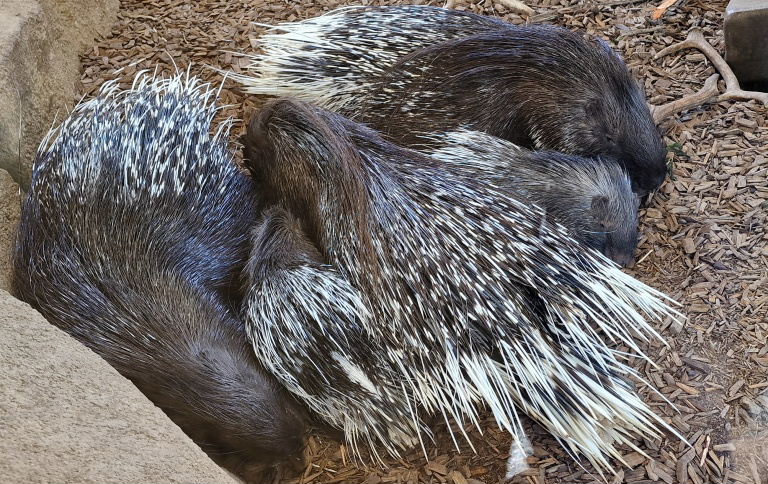African Crested Porcupine Hystrix cristata
(The Cape Porcupine, H. africaeaustralis, is shown below the African.)


The African/Eurasian porcupines are a totally different family of rodents than the smaller, tree-climbing American porcupines.
They are ground-dwelling/-feeding. Both have quills. Shown here is the largest species, the African Crested Porcupine,
prevalent in parts of southern Italy as well as north and sub-Saharan Africa. The name porcupine means pig with spines.



When under threat from a perceived predator (large carnivore or human), they raise and rattle their quills.
If necessary, they reverse charge the enemy to stab with their quills and can kill.



With crest and quills raised. They are the largest of the terrestrial porcupines and Africa's largest rodent.



Mainly nocturnal and mainly vegetarian, they also collect bones in their dens to gnaw on for
calcium and to keep their front teeth from overgrowing.



They are long-lived for a rodent - they can live for over 25 years.
Usually dark brown or black, but white (albino) and off-white (leucistic) porcupines can occur.



They live in family groups and are monogamous.
Cape (Crested) Porcupine
Hystrix africaeaustralis


The similar-looking Cape Porcupine, also called Cape Crested Porcupine, is native to
scrub and savannah of the southern part of Africa.



Docile, but if provoked they will turn their rear and raise their sharp quills (and even run backwards
to jab the aggressor). As they dig burrows and dig for roots, they turn over and aerate the soil, keeping it healthy.






